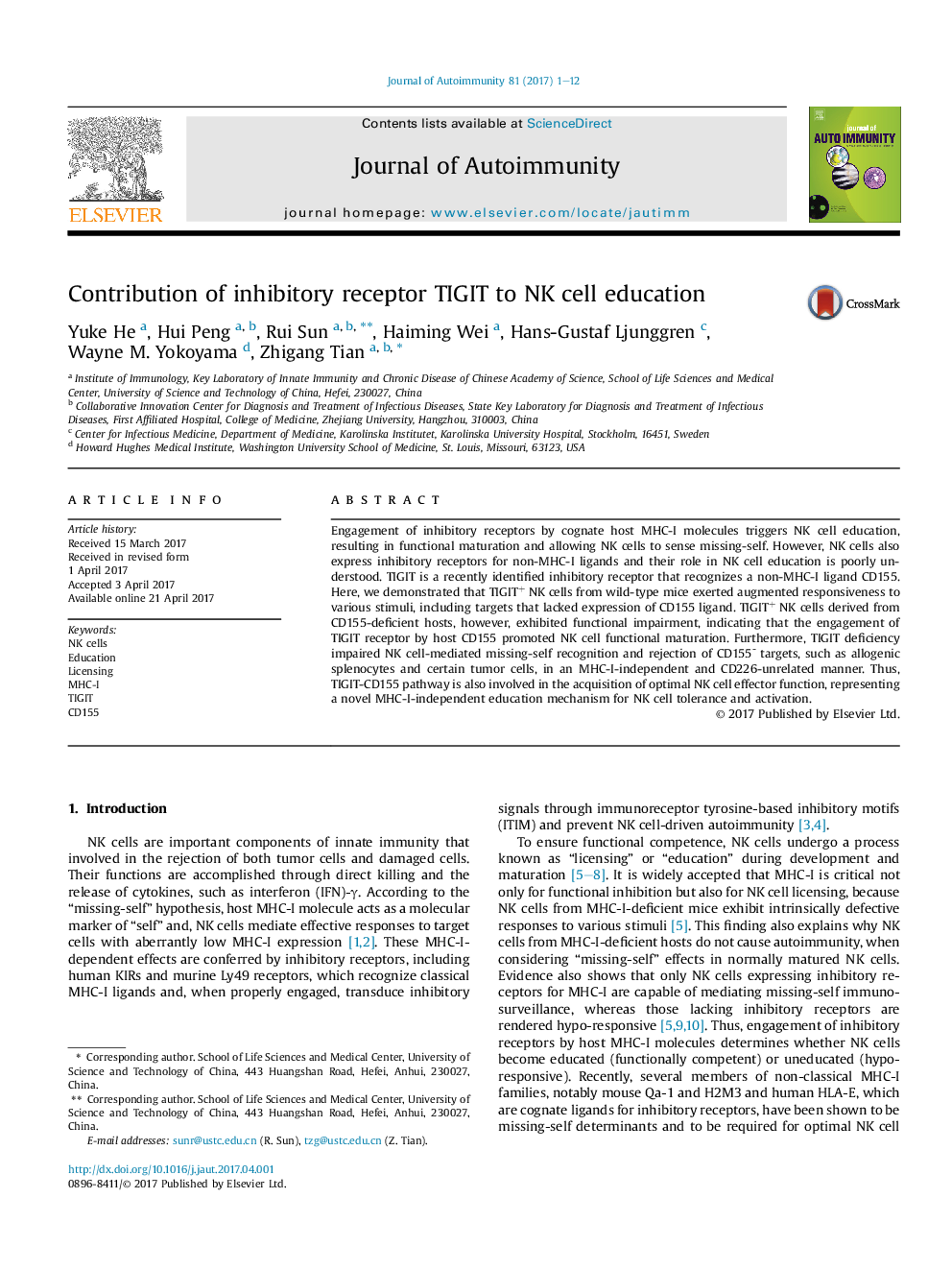| Article ID | Journal | Published Year | Pages | File Type |
|---|---|---|---|---|
| 5667810 | Journal of Autoimmunity | 2017 | 12 Pages |
â¢Inhibitory receptor TIGIT enhances NK cell effector function towards various stimuli.â¢TIGIT+ NK cells from CD155-deficient hosts are rendered hypo-responsive.â¢TIGIT contributes to NK cell education in an MHC-I-independent and CD226-unrelated manner.
Engagement of inhibitory receptors by cognate host MHC-I molecules triggers NK cell education, resulting in functional maturation and allowing NK cells to sense missing-self. However, NK cells also express inhibitory receptors for non-MHC-I ligands and their role in NK cell education is poorly understood. TIGIT is a recently identified inhibitory receptor that recognizes a non-MHC-I ligand CD155. Here, we demonstrated that TIGIT+ NK cells from wild-type mice exerted augmented responsiveness to various stimuli, including targets that lacked expression of CD155 ligand. TIGIT+ NK cells derived from CD155-deficient hosts, however, exhibited functional impairment, indicating that the engagement of TIGIT receptor by host CD155 promoted NK cell functional maturation. Furthermore, TIGIT deficiency impaired NK cell-mediated missing-self recognition and rejection of CD155- targets, such as allogenic splenocytes and certain tumor cells, in an MHC-I-independent and CD226-unrelated manner. Thus, TIGIT-CD155 pathway is also involved in the acquisition of optimal NK cell effector function, representing a novel MHC-I-independent education mechanism for NK cell tolerance and activation.
Graphical abstractDownload high-res image (298KB)Download full-size image
